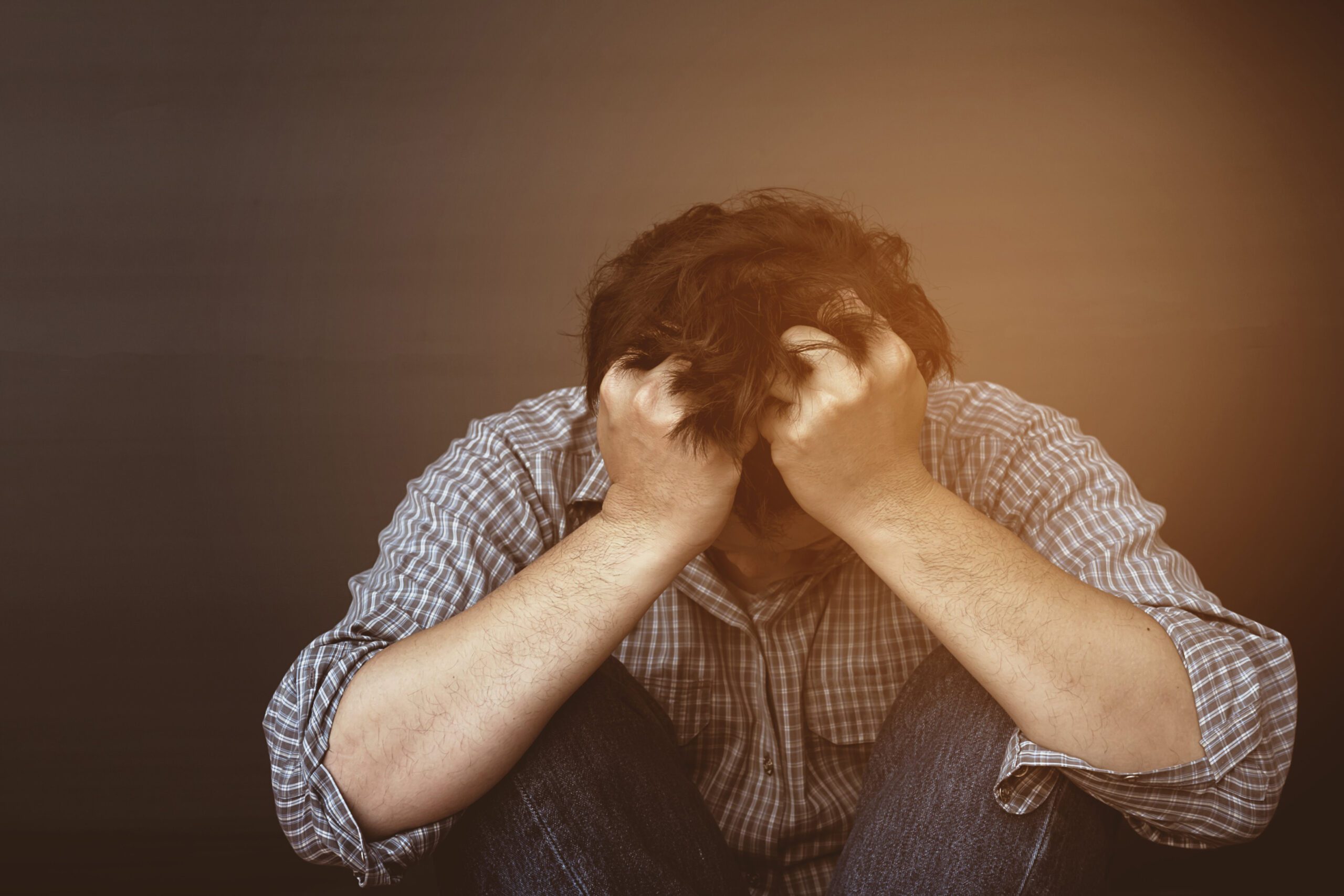Anxiety is the feeling of fear or worry. It is a normal reaction to a variety of circumstances. It could affect your mental health if you experience anxiety every day and don’t recall the last time you felt calm and relaxed.
The counsellor will help you understand the root of your anxiety and help you know them and suggest methods to deal with them. A counsellor can assist you in understanding how to deal with stress.
What kinds of therapy are employed to treat anxiety?


Psychotherapy–unlike anti-anxiety medication–treats more than just anxiety symptoms. The self-reflective therapy approach helps people who suffer from anxiety disorders understand the root of their anxiety, recognize it, and change their anxiety. If signs of anxiety increase, implementing healthy coping strategies is crucial.
A few of the kinds of therapy that are most frequently used to treat anxiety are:
1. Cognitive-Behavioral Therapy
Cognitive behavioral therapy (CBT) is a popular therapy for treating anxiety disorders. CBT is based on the idea that our thoughts and thoughts affect the way we feel, think and behave. This means that your circumstances don’t influence how you feel; however, your perception of the events does.
CBT treats negative thoughts and behavior in how we view the world around us and our thoughts and behaviors.
Cognitive-behavioral therapy consists of two major elements:
- Psychotherapy analyzes how negative thoughts cause anxiety and feelings of fear.
The treatment for behavioral disorders examines how your behavior and reactions to situations cause stress. - Through a mixture of assignments for homework, goal-setting, group therapy, and scheduled sessions of therapy, CBT is designed to uncover problematic beliefs and attitudes and challenge them to replace them with more healthy, positive thoughts and ideas.
Based on a meta-analysis conducted by Hoffman and co., CBT is an effective treatment for a variety of mental health issues which include:
- GAD, also known as generalized anxiety disorder (GAD)
- Specific Phobias
- Post-traumatic stress disorder (PTSD)
- Disorder of separation anxiety
- Agoraphobia
- Social anxiety disorder (social phobia)
- Disorder of panic
- Obsessive-compulsive disorder (OCD)
CBT can also be a successful treatment for co-occurring disorders, including depression and bipolar disorder, which include major depression and bipolar disorder.
2. Therapy for Exposure
As the name implies, exposure therapy exposes patients to situations or objects they are afraid of. Through frequent exposures, clients experience an increased sense of control over the problems they fear, and anxiety can be managed over time.
The practice of exposure therapy can be accomplished in two different ways. Therapists may have clients imagine scary scenarios or the clients could be forced to confront fears in their daily lives. Exposure therapy may be utilized as a stand-alone therapy or in conjunction with cognitive behavioral therapy.
3. Psychodynamic Therapy


Psychodynamic therapy is identifying negative patterns of behavior and thinking that have roots in previous experiences. These therapists usually employ open-ended questions and discussions, allowing clients to speak about what’s in their heads.
In therapy sessions, patients and therapists collaborate to discover the unconscious patterns that lead to negative behaviors. In bringing these negative associations to light, patients can be taught to overcome problematic behaviors and emotional states by the National Alliance on Mental Illness (NAMI).
4. Interpersonal Therapy
IPT (interpersonal therapy) (IPT) is a short-term therapy that addresses problems with interpersonal relationships in adolescents and adults.
In the initial therapy sessions, you can anticipate your therapist collecting information regarding the nature of your mental health issues and social interactions to discover negative patterns, like avoidance of social interaction, isolation from others, or aggression. The end goal is that IPT therapy helps clients better understand their mental health concerns and create positive interactions with other people.
5. Dialectical Behavior Therapy (DBT)
DBT is heavily built on CBT. However, it focuses on letting go of uncomfortable thoughts, behavior, emotions, and feelings instead of fighting these. When confronting negative thoughts and behaviors, patients can collaborate with therapists to develop a viable treatment plan for healing.
DBT assists patients in learning mental and emotional skills and applying them to their everyday lives. Most of the time, DBT focuses on dealing with difficult emotions such as extreme fear and anxiety. DBT can assist people suffering from anxiety disorders and increase their ability to regulate emotions as well as their ability to manage emotions.
6. Alternative Therapies for Anxiety Disorders
While you examine your anxiety disorders in therapy, you might be interested in exploring alternative methods to reduce anxiety levels and improve mental well-being.
A few complementary therapies that could aid in the reduction of anxiety symptoms are:
- Exercise: Taking care of your physical health is equally vital to your mental well-being. Research has proven that regular exercise can substantially relieve anxiety symptoms. To maximize mental health benefits, set time for one hour of aerobic exercise every three to five days per week.
- Healthy lifestyle changes: Eating a balanced diet, getting enough rest, avoiding nicotine and caffeine, and arranging a time for your favorite routines can help reduce anxiety-related symptoms.
- Relaxation techniques, mindfulness, Mindfulness meditation, yoga, and progressive muscle relaxation can alleviate anxieties and enhance your psychological well-being.
- Groups for support: Many people with anxiety disorders find support groups valuable to their treatment program. Support groups can help teenagers and adults, and older adults feel less isolated, combat social anxiety, and connect with others in similar situations. Research has proven that support groups benefit those with post-traumatic stress disorder.
Before including vitamin supplements or herbal remedies in your treatment regimen, be sure to speak to your primary doctor to rule out possible interactions with tricyclic antidepressants and medication.
Final Thoughts
At times, its symptoms can get overwhelming, and extreme anxiety and fear can cause problems in your everyday life. If you suffer from severe anxiety, you must put your mental well-being in the right hands.
To locate the best therapy provider, reach out to the right mental health professional via With Therapy. We’ll help you connect with the mental health professional you’re comfortable with, regardless of your preferences.
One of the skilled mental health specialists on the With Therapy platform can help you discover your options for treatment and new methods to control your anxiety symptoms, enhance your quality of life, and address your mental health issues.
Interested Reads:
Why Do You Need Marriage Counselling?
